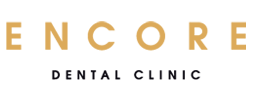How Do I Know If I Have a Cavity?
“How do I know if I have a cavity?” is a question many people ask. Cavities are common dental issues that affect millions of individuals worldwide. They develop when tooth enamel breaks down, leading to holes in your teeth. In this blog post, we’ll discuss the signs and symptoms of cavities, ways to prevent them, and the importance of scheduling a dental appointment with your Port Coquitlam dentist for a checkup and cleaning.
Do I Have A Cavity?
Wondering about cavities? Let’s delve into it. Cavities are a result of tooth decay, triggered by harmful bacteria in your mouth. These bacteria produce acids that gradually wear down your tooth enamel, forming small holes or cavities. Now, let’s explore the telltale signs to be aware of:
- Toothache: A sudden toothache can be an early indicator of a cavity. This pain can range from mild sensitivity to sharp, intense discomfort.
- Pain while eating: If you experience pain when eating hot, cold, or sweet foods and beverages, it could be a sign of a cavity.
- Visible holes or pits: Small holes or pits in your tooth can be a telltale sign of a cavity. They can appear brown, black, or even white.
- Staining: Dark brown or black discoloured spots on your teeth may indicate the presence of a cavity.
- Bad breath or a foul taste: Persistent bad breath or an unpleasant taste in your mouth can be signs of tooth decay caused by cavities.
Top Tips for Preventing Cavities and Maintaining a Healthy Smile
The good news is that cavities are largely preventable with proper oral care. By maintaining a diligent oral hygiene routine and making wise dietary choices, you can significantly reduce the risk of tooth decay and cavities. Additionally, scheduling regular dental check-ups and cleanings is crucial to catch and address any early signs of cavities. These essential steps will help you preserve your teeth and enjoy a cavity-free, radiant smile for years to come.
- Brush regularly: Brush your teeth at least twice a day using fluoride toothpaste to remove plaque and bacteria.
- Floss daily: Flossing daily helps clean your teeth, preventing plaque buildup and reducing your risk of cavities.
- Regular dental visits: Make sure to schedule dental checkups and cleanings every six months to detect early signs of tooth decay and receive professional care.
- Eat a balanced diet: Limit sugary foods and drinks, opting instead for a well-balanced diet rich in fruits, vegetables, whole grains, and lean proteins.
- Drink fluoridated water: Fluoride strengthens tooth enamel, so drinking fluoridated water or using fluoride mouth rinses helps prevent cavities.
How Do I Know If I Have a Cavity or Tooth Decay?
Dental cavities, often referred to simply as ‘cavities,’ are one of the most common dental problems. They go by many names, including tooth decay, dental caries, or simply ‘a dent in your tooth.’ No matter what you call them, these tiny openings or holes in your teeth are the result of a complex process. When harmful bacteria in your mouth feed on sugars and starches from your diet, they produce acids. These acids, over time, can erode your tooth enamel, leading to the formation of cavities. While the terminology may vary, the importance of addressing these dental issues promptly remains consistent to prevent further damage and maintain good oral health.
Schedule a Dental Appointment Today
If you suspect you have a cavity or experience any dental discomfort, it’s crucial to visit your Port Coquitlam dentist for a professional evaluation and treatment. Cavities left untreated can lead to more severe dental issues, such as tooth abscesses or even tooth loss. Schedule a dental appointment with your Port Coquitlam dentist today to maintain a healthy, beautiful smile for years to come.



